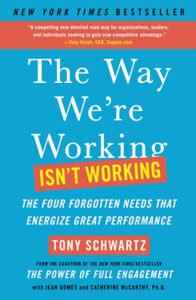|
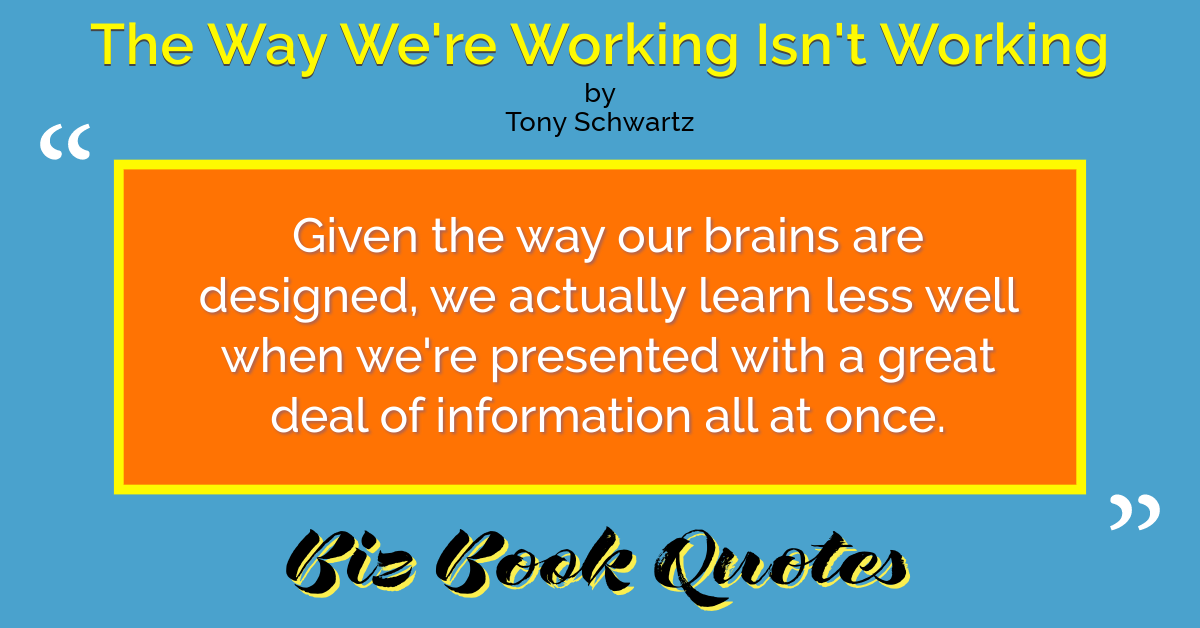
|
The Way We’re Working Isn’t Working:
Given the way our brains are designed, we actually learn less well when we’re presented with a great deal of information all at once.
|
180 |
|
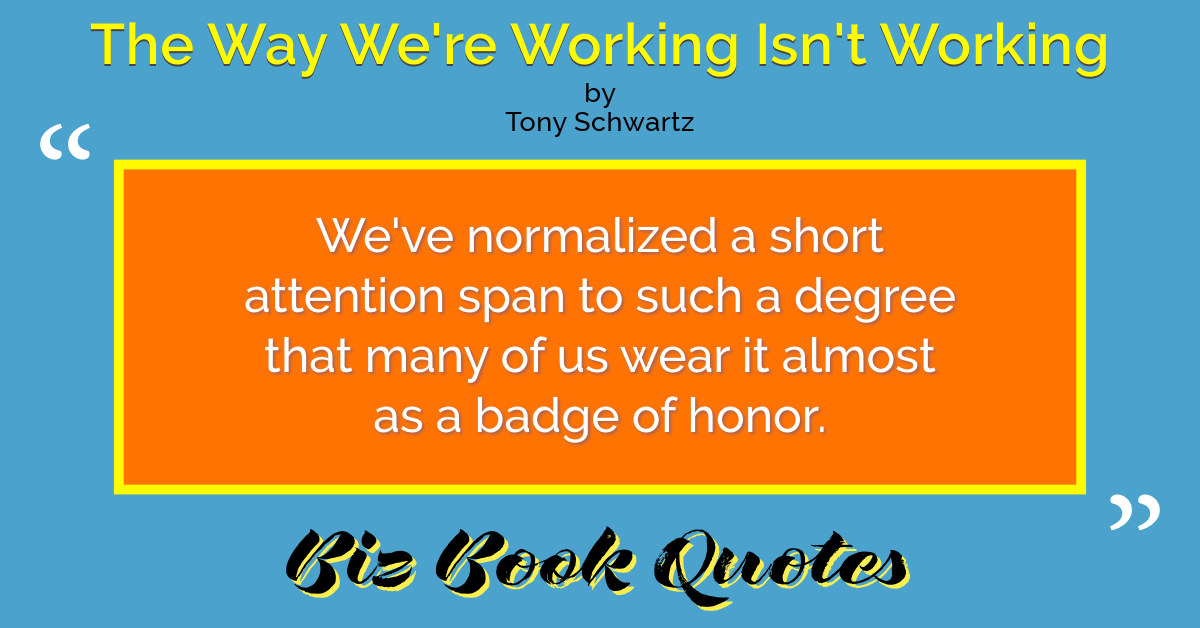
|
The Way We’re Working Isn’t Working:
We’ve normalized a short attention span to such a degree that many of us wear it almost as a badge of honor.
|
181 |
|
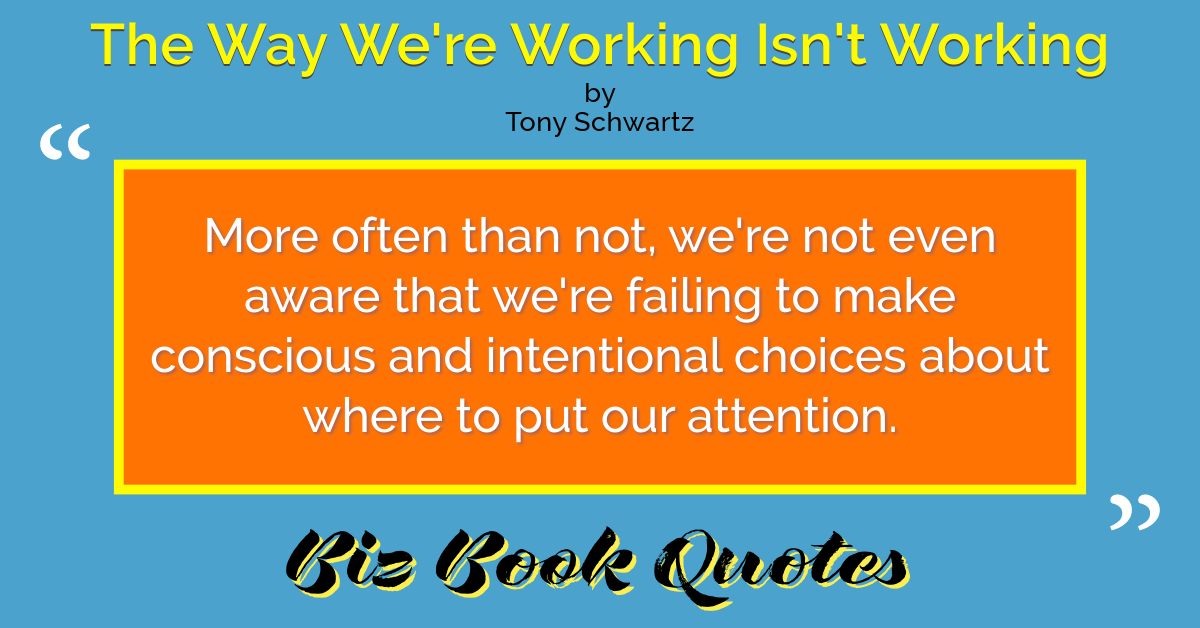
|
The Way We’re Working Isn’t Working:
More often than not, we’re not even aware that we’re failing to make conscious and intentional choices about where to put our attention.
|
181 |
|
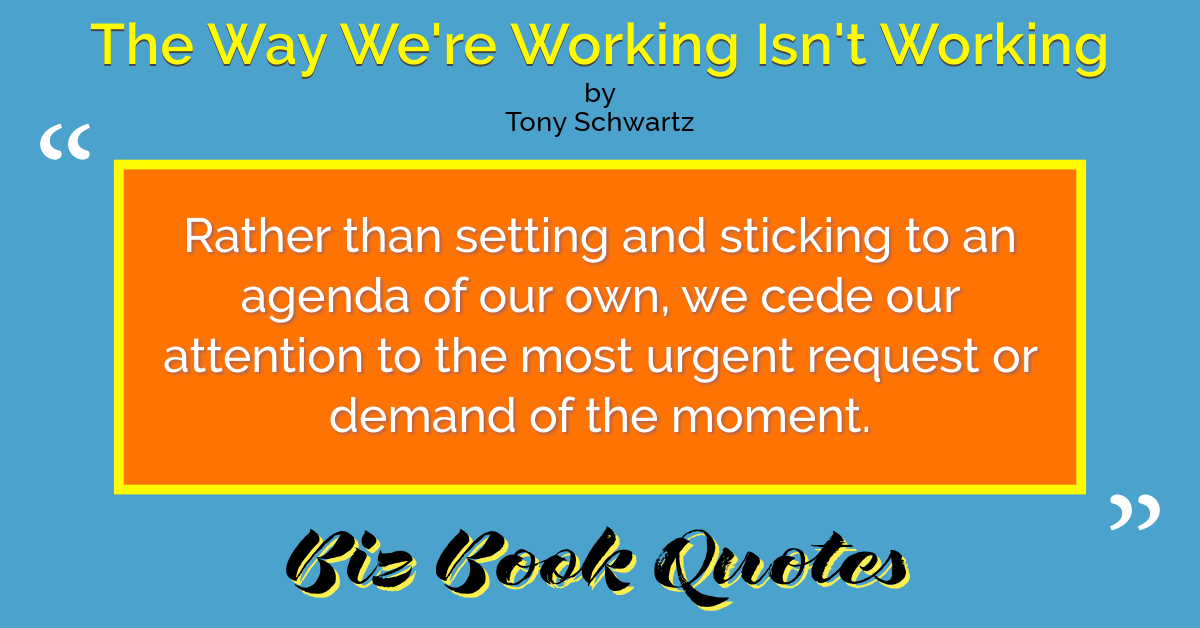
|
The Way We’re Working Isn’t Working:
Rather than setting and sticking to an agenda of our own, we cede our attention to the most urgent request or demand of the moment.
|
181 |
|
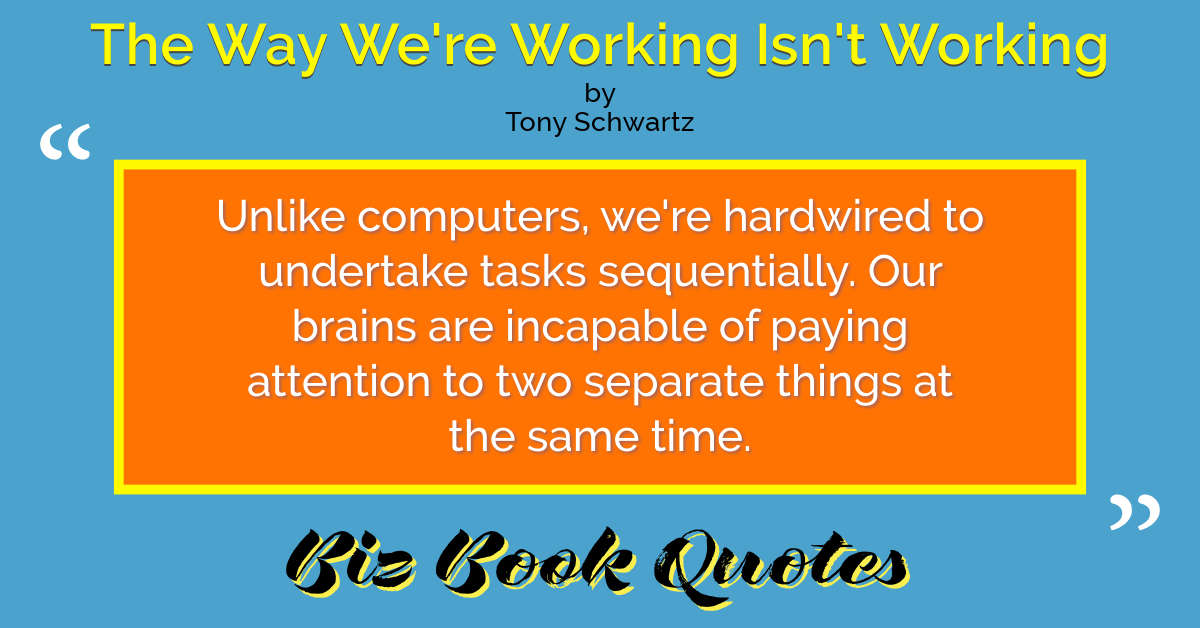
|
The Way We’re Working Isn’t Working:
Unlike computers, we’re hardwired to undertake tasks sequentially. Our brains are incapable of paying attention to two separate things at the same time.
|
182 |
|
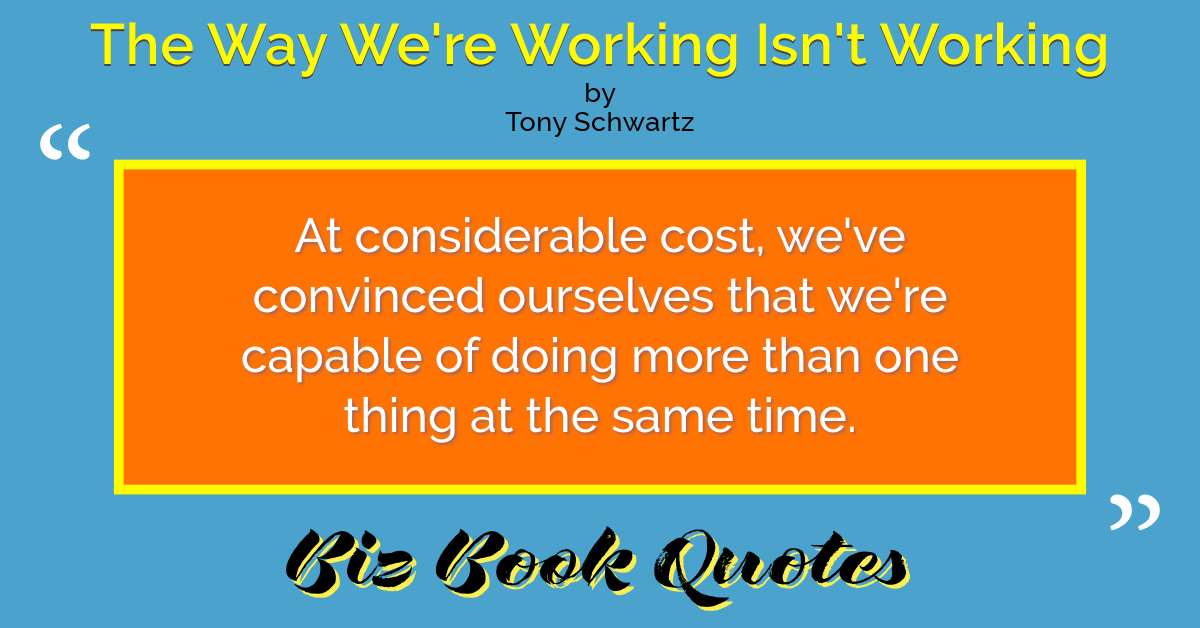
|
The Way We’re Working Isn’t Working:
At considerable cost, we’ve convinced ourselves that we’re capable of doing more than one thing at the same time.
|
182 |
|

|
The Way We’re Working Isn’t Working:
The more attention required for a given task, the less that’s available for another and the longer it takes to shift from one focus of attention to another.
|
183 |
|
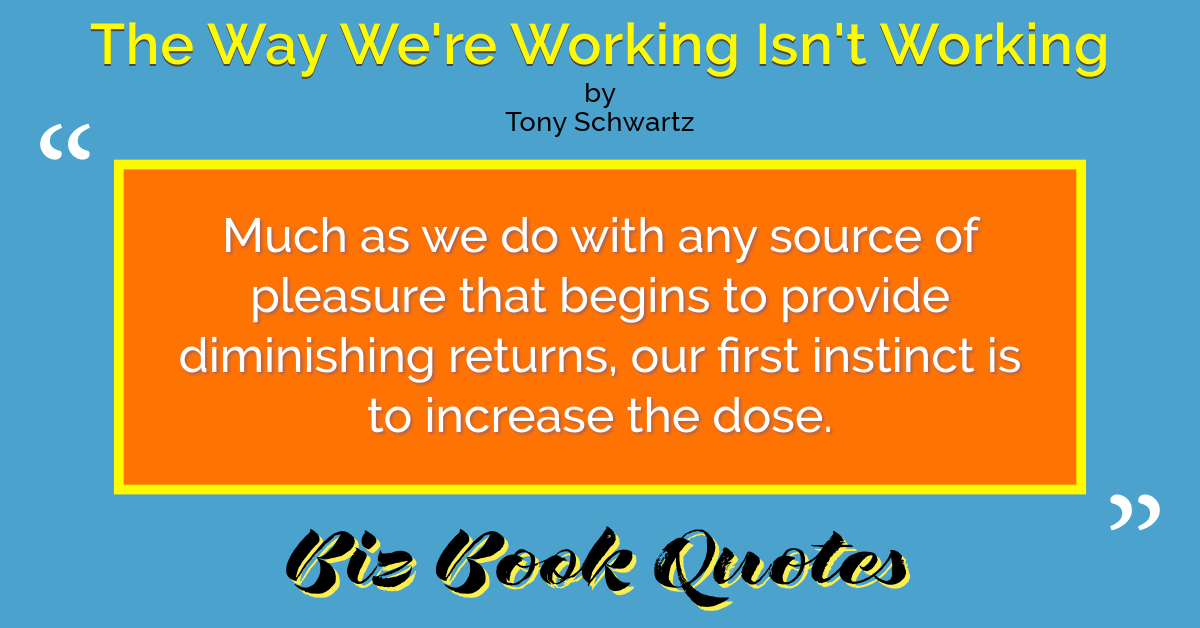
|
The Way We’re Working Isn’t Working:
Much as we do with any source of pleasure that begins to provide diminishing returns, our first instinct is to increase the dose.
|
183 |
|
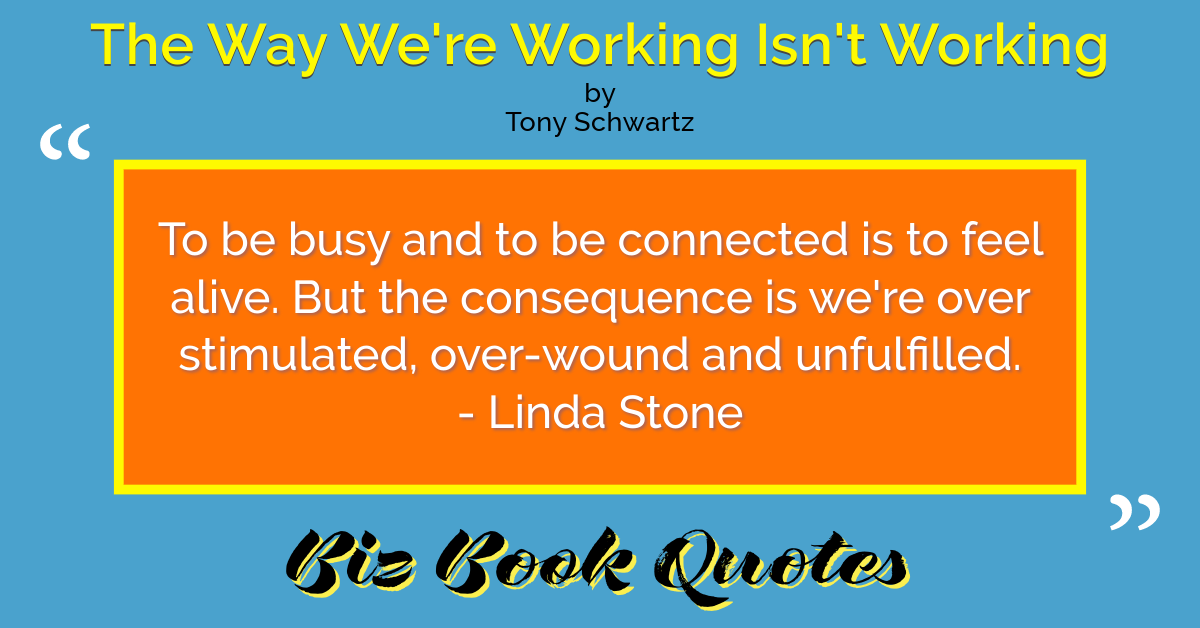
|
The Way We’re Working Isn’t Working:
To be busy and to be connected is to feel alive. But the consequence is we’re over stimulated, over-wound and unfulfilled. – Linda Stone
|
183 |
|
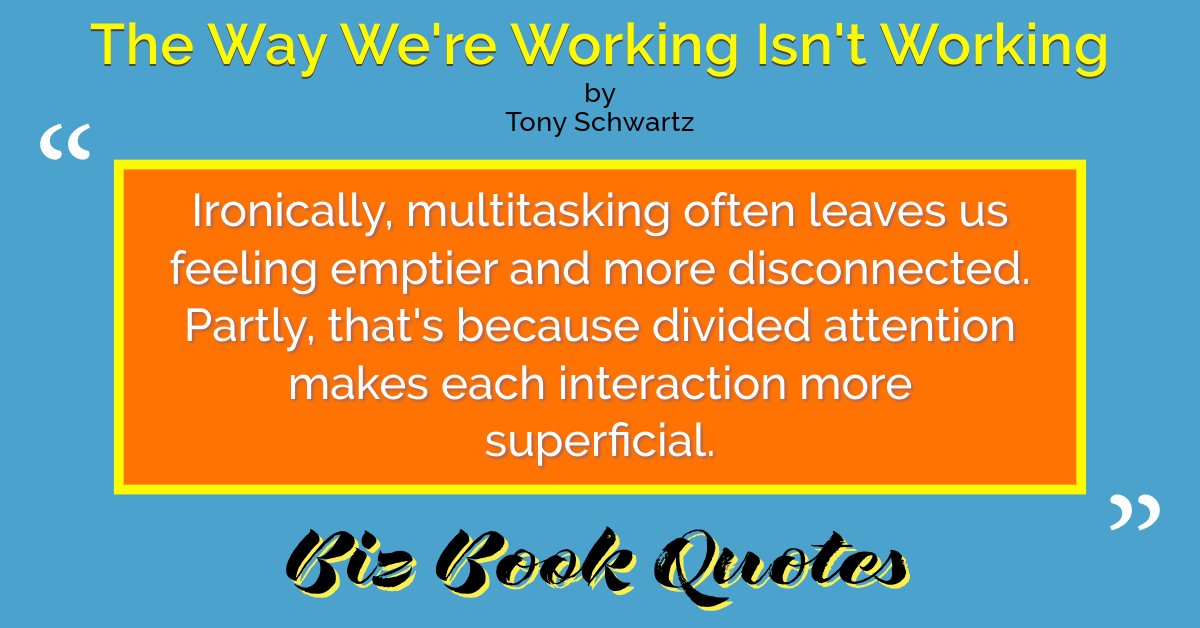
|
The Way We’re Working Isn’t Working:
Ironically, multitasking often leaves us feeling emptier and more disconnected. Partly, that’s because divided attention makes each interaction more superficial.
|
184 |
